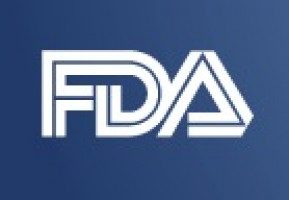
On July 26, 2021, the Food and Drug Administration approved pembrolizumab for high-risk, early-stage, triple-negative breast cancer (TNBC) in combination with chemotherapy as neoadjuvant treatment, and then continued as a single agent as adjuvant treatment after surgery.
FDA also granted regular approval to pembrolizumab in combination with chemotherapy for patients with locally recurrent unresectable or metastatic TNBC whose tumours express PD-L1 (Combined Positive Score [CPS] ≥10) as determined by an FDA approved test.
FDA granted accelerated approval to pembrolizumab for this indication in November 2020.
The following trial was the basis of the neoadjuvant and adjuvant approval, as well as the confirmatory trial for the accelerated approval.
The efficacy of pembrolizumab in combination with neoadjuvant chemotherapy followed by surgery and continued adjuvant treatment with pembrolizumab as a single agent was investigated in KEYNOTE-522 (NCT03036488), a randomised, multicenter, double-blind, placebo-controlled trial conducted in 1174 patients with newly diagnosed previously untreated high-risk early-stage TNBC (tumour size >1 cm but ≤2 cm in diameter with nodal involvement or tumour size >2 cm in diameter regardless of nodal involvement).
Patients were enrolled regardless of tumour PD-L1 expression.
Patients were randomised (2:1) to pembrolizumab in combination with chemotherapy or placebo in combination with chemotherapy. Details of the chemotherapy regimen are in the drug label linked below.
The main efficacy outcome measures were pathological complete response (pCR) rate and event free survival (EFS). The pCR rate was 63% (95% CI: 59.5, 66.4) for patients who received pembrolizumab in combination with chemotherapy compared with 56% (95% CI: 50.6, 60.6) for patients who received chemotherapy alone.
The number of patients who experienced an EFS event was 123 (16%) and 93 (24%), respectively (HR 0.63; 95% CI: 0.48, 0.82; p=0.00031).
The most common adverse reactions reported in ≥ 20% of patients in trials of pembrolizumab in combination with chemotherapy were fatigue/asthenia, nausea, constipation, diarrhoea, decreased appetite, rash, vomiting, cough, pyrexia, alopecia, peripheral neuropathy, stomatitis, headache, abdominal pain, arthralgia, myalgia, and insomnia.
Dyspnea, mucosal inflammation and weight loss are considered overall adverse events for pembro + chemo, but just not specific to this trial.
The recommended dosage of pembrolizumab for TNBC is 200 mg every 3 weeks or 400 mg every 6 weeks as an intravenous infusion over 30 minutes.
Pembrolizumab is administered in combination with chemotherapy for neoadjuvant treatment for 24 weeks, and then as a single agent for adjuvant treatment for up to 27 weeks.
View full prescribing information for pembrolizumab here.
Source: FDA
We are an independent charity and are not backed by a large company or society. We raise every penny ourselves to improve the standards of cancer care through education. You can help us continue our work to address inequalities in cancer care by making a donation.
Any donation, however small, contributes directly towards the costs of creating and sharing free oncology education.
Together we can get better outcomes for patients by tackling global inequalities in access to the results of cancer research.
Thank you for your support.